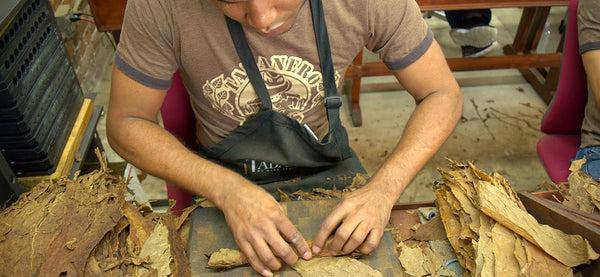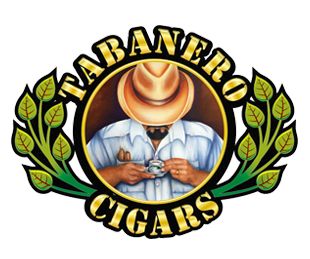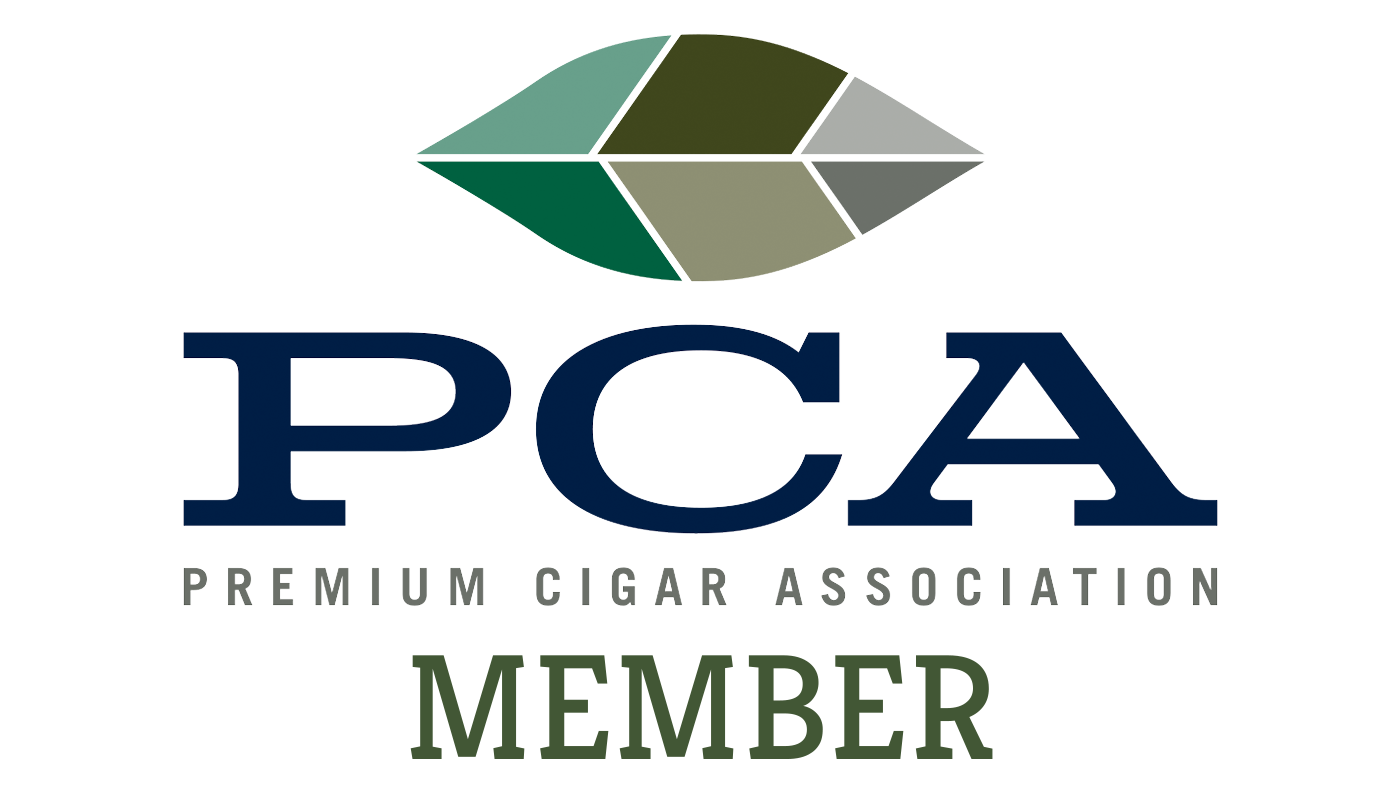The Legacy of Tampa: Cigar Capital of the World
Tabanero Cigars and Tampa's Cigar Capital Legacy
In the late 19th and early 20th centuries, Tampa, Florida, earned the prestigious title of "Cigar Capital of the World." This recognition was a culmination of factors, including a boom in cigar manufacturing, the founding of Ybor City, access to fine Cuban tobacco, industry innovation, expansive cigar export, and significant cultural impact. Tampa's cigar industry thrived, shaping the city's cultural identity and architectural landscape.
One integral part of this legacy is Tabanero Cigars, which has been in Tampa since 2007. While Tabanero Cigars has since shifted production to Nicaragua due to a scarcity of skilled cigar rollers, its history remains closely intertwined with Tampa's cigar heritage. Tampa may no longer hold the official title, but its deep-rooted connection to the cigar industry endures, making it a destination for cigar enthusiasts seeking to explore its rich tobacco history. Tabanero Cigars, with its legacy and continued presence, is a testament to this enduring heritage.

Crafting Moments of Purpose and Friendship with Fine Cigars
Friendship, like a well-aged cigar, matures over time. It's a blend of shared experiences, mutual understanding, and unwavering support. View full article →Premium Tobacco - Is There A Difference?
When it comes to tobacco, there is usually a well-defined distinction between the Regular Vs. Premium kind.
You will often find 'premium' tobacco products, such as cigars, priced at outrageously high rates. These rates are only attached to products that have the premium label attached to them.
Are you craving a taste for premium tobacco? Tabanero Cigars has got you covered. Their range of premium yet well-priced cigars are sure to satisfy your cravings, as well as your budget.
Today, we will look at a typical example of a premium tobacco product - such as premium cigars - and make a judgment on whether a booming difference in prices is justified. We shall also go over some common types of tobacco and which products are available in the market.

What Makes A Tobacco Cigar Premium?
A premium cigar differs from a non-premium cigar in several ways, including the work, craft, and price. The production of premium cigars is manual. Non-premium cigars, on the other hand, are frequently manufactured by machinery.
Premium cigars use tobacco solely and are harvested, cured, and fermented in the same way as non-premium cigars. Non-premium cigars, in opposition to premium cigars, may be treated chemically.
Non-premium cigar makers can change the color and flavor of their tobacco by treating them with chemicals. The color, aroma, and flavor profile of premium cigars, on the other hand, are all created through the curing and fermenting process.
Each of these cigars is rolled by hand to showcase the workmanship associated with premium cigars. As you may have seen, the price gap between premium and non-premium cigars is large.
Premium cigars are more expensive because of the time and effort required by cigar rollers to hand-roll your cigar.
There is also a distinction in the locations where premium cigars are supplied.
Aside from pricing, the location where you buy the cigar may indicate whether you're obtaining a premium or non-premium cigar.
One of the easiest ways to identify if you're buying a quality cigar is to inquire about its origins and whether it's hand-rolled or machine-rolled.
Furthermore, understanding the roots of how your cigar was rolled can give you a new respect for the effort and dedication that went into making it.
While some quality cigars are more expensive than others, not all premium cigars are.
So, do you think the high price is justified for a premium tobacco product? After going over the above information, it might be so.
What Are The Common Types Of Tobacco And Its Products?
Tobacco can be smoked, chewed, or sniffed. Cigarettes, cigars, bidis, and kreteks are examples of smoked tobacco products. Some individuals also use a pipe or hookah - also known as a water pipe - to smoke loose tobacco. Chewing tobacco, snuff, dip, and snus are all chewed tobacco products. The type of chewing tobacco known as snuff can also be sniffed as opposed to chewing.
Cigarettes, cigars, cigarillos, bidis, chuttas, and kreteks are among the many smoking tobacco products available on the global market. Blended tobaccos are used in cigarettes and cigars, and the type of tobacco used in these products has a significant impact on the physicochemical nature of the smoke produced.
Plant genetics, farming practices, climatic conditions, and curing procedures all influence the chemical composition of tobacco leaves. The leaf tobacco frequently used in cigarettes is classified primarily by curing procedures and tobacco kinds.
There are two or more varieties in each class. Individual flue-cured tobacco types are no longer easily distinguishable, and the type identification usually solely refers to a marketing region. Although different countries use different words for categorization, the underlying premise remains the same.
The Unique Attributes Of The Maduro Wrapper
The wrapper refers to the cigar's exterior tobacco leaf. Because there are so many varieties, the wrapper can have an influence on the full flavor and appearance of the cigar.
Wrappers are often taken from the larger, thinner leaves near the bottom of the tobacco plant. However, Maduro wrappers are frequently sourced from top leaves. The leaves are aged from their natural green tint to varied degrees of brown perfection. The variety of flavors and aesthetics is vast, with no less than fifty wrapper types.
As you guessed it - here we will be discussing the Maduro Wrapper. We will be going over what a Maduro Wrapper is and what exactly makes Maduro Wrappers unique from other wrappers.

What Is A Maduro Wrapper?
Maduro Wrappers, unlike most other common wrappers, are not really defined by their country of origin or even the type of leaf involved. Maduro is a Spanish word that means matured. Maduro wrappers, on the other hand, are made from matured leaves that have gone through a natural fermentation process, resulting in a gorgeous dark brown leaf.
Maduro wrappers have deeper and more nuanced flavors as a result of their age. The end product is determined by the type of leaf used, albeit not any leaf can be used as a Maduro wrapper. Just those who have the rigor to withstand the aging process for years are eligible.
You can choose from a wide range of Maduro wrappers to suit your preferences. They're easy to recognize because of their darker color, but keep in mind that they differ depending on the type of leaves utilized.
What Makes Maduro Wrappers Unique?
Natural wrappers are lighter in color, whereas Maduro wrappers are darker. Because the color of the brown can range from dark brown to midnight black, there are many different sorts of Maduro.
The Maduro receives more sunshine throughout the growth phase, as well as an extra fermentation during the processing of the tobacco leaves, which results in the color variation.
After undergoing a lengthy fermentation process to convert the starches in the leaves into sugars, the wrappers are cured for an extended amount of time to achieve their trademark black, oily surface.
Natural wrappers with a lighter hue are created from tobacco that has not been exposed to direct sunlight. To shelter them from direct sunshine, some tobaccos are grown in cheesecloth.
The darker Maduro, on the other hand, has been exposed to direct sunshine. Natural wrapper leaves are also dried at a slower rate, giving them their distinctive light golden tan hue.
The extra fermentation that the Maduro wrapper receives gives it a richer, more nuanced flavor than the natural wrapper. Maduro wrappers have a spectrum of flavors from chocolate to peppery, with a sweet taste from the extra fermenting that makes it a perfect match with cognac or rum.
Many people love Maduro-wrapped cigars during the cooler months, gently smoking them and being warmed by the deep, sweet flavor and a natural pairing with cognac and whiskey. Natural wrapped cigars, on the other hand, are popular in the spring and summer because of their light flavor, which goes well with hot, humid weather.
Are you looking for high-quality cigars to enjoy year-round? Well, your search is over! This is because Tabanero Cigars is here to provide you with some of the best cigars in affordable ranges!
Check them out to bring a whole new level of flavor to your taste buds!
Tabanero Cigars Are Better Than Cubans
Handmade by Trained Cuban Artisans

All of the cigars at Tabanero Cigars are handmade in the USA by Cuban Artisans. Every one of our Cuban Artisan rollers are trained in Cuba and come to the famous Ybor City for a chance to live out their dream!

Each cigar rolled at Tabanero Cigars is better than a Cuban cigar. Look next for a Cuban with a Made in the USA logo! There will never be a better cigar than a Tabanero.

Ybor City Cigar Festival - November 19, 2016

Mark Your Calendars for the Biggest Cigar Event in the Cigar Capital of the World!
The Ybor Cigar Festival is on Saturday, November 19, 2016.Gates open at 11am till 5pm
Enjoy the 2016 Photo Re-Cap Below and We'll See You in 2017!







Our Vision at Tabanero Cigars
Hand-Made Cigars in History
When we see pictures like this but 100 years ago the dreamers like me ask our self how it would be to be there at that time. What would it be like to the smell the aromas, see the people, hear the language?
Restoring Hand-Rolled Cigars in Ybor City, Florida
I ask myself if a factory in the US can get to 100 rollers again making 90k cigars per week, and in just six years we have gone from 200 cigars units per month to sell to 10k.
Do you believe that we have the quality, passion, and integrity to manufacture and sell 360k cigars per month hand-made in the USA by Cuban artisans?
I do, (and we all do at Tabanero Cigars), I don't pay attention to the naysayers. I concentrate in my Vision and to me this still the land of opportunities. I'm living a dream that it was impossible to fulfill back in Cuba.
Thank you for letting me share,
Yanko Maceda
Keeping Quality Cigars Fresh
How Do You Keep Cigars Fresh?
Two Factors For Fresh Cigars
So, How Do You Protect the Flavor and Burn of a Cigar?
What is the Optimal Temperature and Humidity Level to Keep Cigars Fresh?
Purchase Quality to Ensure Quality
Enjoy!
Tabanero Cigars - Featured on TV Show: Wild Travels
TV Show, Wild Travels makes a stop in Ybor City to learn more about Ybor's cigar heritage and passion that goes into cigar making at Tabanero Cigars. Click here to watch
Cuban Cigar rolling at Tabanero Cigar Factory, Ybor City
We take a tremendous amount of pride in our craft of rolling cuban style cigars. Our focus is on quality, not quantity. In this article we aim to highlight the wonderful craft of cuban style cigar rolling that is used daily right here in the Tabanero factory here in Ybor City, Tampa, FL.

A cuban roller trains and learns the art of rolling cigars for 9 months. These rollers work independently, they do not work in pairs. They roll the entire cigar themselves versus rollers from Central America and the Caribbean who work in pairs. The men do the bunching and the woman perform the wrapping. This allows them to work faster. They are able to do 600 to 1000 cigars a day. A cuban roller only rolls 100-150 cigars per day. This allows the Cuban Artisan roller to focus on the craft and quality of rolling the cigar. The selection of tobacco is a very important part of the rolling process. High quality tobacco must be used to ensure proper construction. Oliva Tobacco is our local tobacco supplier here in Tampa. Oliva is the largest grower of Ecuadorian wrapper and binder and the largest supplier of filler. They sell filler tobacco from Nicaragua, D. Republic, Honduras, Ecuador, Mexico, Peru, and Indonesia. All of the world’s best tobacco can be found right here in Tampa through our supplier, Oliva Tobacco Company. When buying cigars from a larger tobacco manufacturer located in Nicaragua or Dominican Republic they will use tobacco filler that is indigenous to their country which limits the variety of tobacco and flavor you can experience in one of those cigars. At Tabanero, we have access to the best rollers and tobacco that is available. We have been in business for 5 years and have experienced tremendous growth. We believe we can rescue the industry 1 cigar at a time.

We use cuban style rolling exclusively. We believe it is superior to any other style of rolling. The roller lays out the binder leaf of the cigar. The roller then begins to bunch a blend of ligero, seco, and volado leaves together to create the filler of the cigar. As the roller bunches the cigar he or she is continuously feeling the bunch to ensure it contains the right amount of tobacco. The roller then rolls the binder leaf around the blend of filler tobacco and places it in a mold. The cigars rest in a mold for a couple hours. The cigars are then tested using a Drawmaster. The Drawmaster is a machine we have implemented here at Tabanero and is used tomeasure the draw of every single cigar that we roll. It’s important that the cigar doesn’t have too tight or too loose of a draw. If it’s too loose the cigar will burn hot and will not produce the flavor profile we are expecting from the blend. The roller then places a wrapper leaf around the cigar. Finally the roller will apply a Cuban triple cap. The final cap is the cap that should be used as a guideline for cutting the cigar. This triple cap is a sign of a high quality cigar made by a Cuban Artisan. The cigars are then placed in an air conditioned room for a period of 2 weeks. The cigars then rest in our large humidor for 90 days prior to fulfilling and shipping orders to our customers. Aging is a key component of the final product. Large production factories only keep cigars a max of six weeks compared to our 90 day agings process.
I interview every roller prior to hiring them to ensure they share the same passion as we do here at Tabanero. It’s very important to us here at Tabanero that the rollers share in the same passion we do and most importantly enjoy what the are doing. I often over hear the rollers talking about how fortunate they are to roll here in Tampa at Tabanero. They truly enjoy their craft and it comes through in the quality of the cigars that we roll here at Tabanero. We believe in what we are doing! We approach cigar rolling a little differently. We produce about 3600 cigars per week using 5 rollers. We produce a limited amount of cigars per month. Our focus is on producing a quality product not quantity. We do offer a monthly membership where we reserve some special cigar blends and sizes for our members. People often ask why we don’t hire more rollers to meet the demand. Because we focus on quality and not quantity. For example, because we are a small factory we are able to focus on details such as draw. We have a machine that we have implemented at Tabanero that We are so confident in the quality of of cigars we have a “No Questions Asked” return policy. We are confident that because of our focus on quality that we will help restore the cigar industry right here in Tampa. We are hopeful that we can recreate Tampa as a cigar destination by encouraging other boutique cigar companies to start their business here in Tampa. We are so committed to this vision that we openly and happily share the resources that we have here at Tabanero with other cigar manufacturers here in Tampa.

We invite you to enjoy a quality rolled cigar by one of our Cuban Artisan rollers. Please be sure to visit us at our Factory Located at 1601 E. 7th Ave, Tampa, FL 33605










